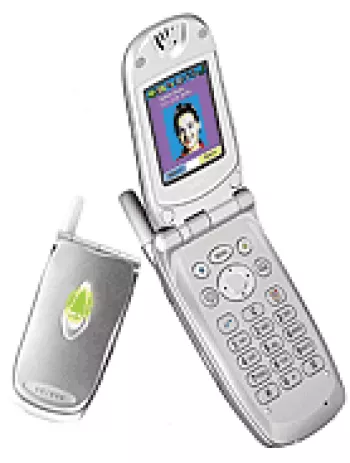
Overview of NEC DB4100
The NEC DB4100 was a mobile phone model released in the year 2000. This phone was part of an era where the primary functions of mobile devices were focused on essential communication features like voice calls and text messaging. As a feature phone, it didn't sport the advanced functionalities we associate with modern smartphones.
Design and Build
The NEC DB4100 featured a compact and sturdy design typical of mobile phones from the early 2000s. With dimensions of 120 x 42 x 22 mm, and a weight of 99 grams, the phone was lightweight and portable. It featured a Mini-SIM card slot which was standard back then. The overall design, while utilitarian, was considered sleek and functional, catering to users looking for a reliable communication device without additional bells and whistles.
Display
The device sported an alphanumeric display rather than the color screens we are accustomed to today. The resolution was set at 97 x 59 pixels with a 5:3 ratio. This type of display supported basic user interface requirements, suitable for displaying text notifications, dialed numbers, and simple graphics used in rudimentary games or tools.
Network and Connectivity
Operating on GSM technology and supporting 2G bands (GSM 900 / 1800), the NEC DB4100 was catered for basic telecommunications. It did not support advanced data services like GPRS or EDGE, which were not widely available at the time of its release. The focus was strictly on voice call stability and text messaging capabilities.
Memory and Storage
The NEC DB4100 had limited onboard memory and did not support expandable storage through card slots. It was equipped to store a phonebook of up to 100 contacts and could log 10 dialed, 10 received, and 10 missed calls. This basic memory setup was adequate for users whose primary focus was communicating through calls and SMS.
Battery Life
Equipped with a removable Li-Ion battery of 800mAh capacity, the phone supported up to 195 hours of standby time and 330 minutes of talk time. These specifications provided ample battery life for users, ensuring they could rely on the device for prolonged periods without frequent recharges, a crucial attribute at the time.
Sound and Alerts
Sound functionalities on the NEC DB4100 included monophonic ringtones and vibrating alerts. However, it lacked a loudspeaker and the popular 3.5mm audio jack for private audio output, which was common in later models. Still, for its time, the sound capabilities met user expectations as most phones then did not support sophisticated sound features.
Additional Features
The NEC DB4100 catered to basic utility needs with features like SMS for messaging, alarm, and clock functionalities. Interestingly, the device did not support any integrated games, which became a popular feature in the subsequent years. Despite this limitation, users appreciated the phone for its primary roles in communication.
Sustainability and Discontinuation
Announced and released in the year 2000, the NEC DB4100 was eventually discontinued as technological advancements introduced smarter and more capable devices. The simplicity of this device is a reflection of the transition phase from traditional to modern telecommunications.
Conclusion
The NEC DB4100 holds a place in the history of mobile technology as a basic yet reliable device designed for connectivity and communication. While it lacks the advanced features of modern smartphones, its existence marks an important era where mobile phones began carving their place as essential communication tools. Users from that time remember it for its simplicity, efficiency, and the foundational role it played in the evolution of mobile phones.
Key Features of NEC DB4100
- Supports GSM 900 / 1800 technology.
- Compact dimensions of 120 x 42 x 22 mm and lightweight at 99 g.
- Alphanumeric display with 97 x 59 pixels resolution.
- Mini-SIM support.
- Phonebook with a capacity to store 100 contacts.
- Keeps records of the last 10 dialed, received, and missed calls.
- Offers Vibration and Monophonic ringtones for alerts.
- Supports SMS for messaging.
- Features a removable Li-Ion battery with 195 hours standby and 330 minutes talk time.
- Available in 18 languages.
NEC DB4100 Disadvantages
- Lacks GPRS and EDGE support.
- Discontinued model, no longer available for purchase.
- Alphanumeric display with low resolution (97 x 59 pixels).
- No memory card slot for expansion.
- Limited phonebook capacity (100 contacts).
- No loudspeaker and lacks a 3.5mm audio jack.
- Does not support any form of wireless connectivity (No WLAN, Bluetooth, or positioning).
- No built-in radio functionality.
- Lacks a built-in camera.
- No USB connectivity.
- No support for games or Java applications.

View Also
More Phones
All Rights Reserved +14266 Phones © Mobilawy 2025

























